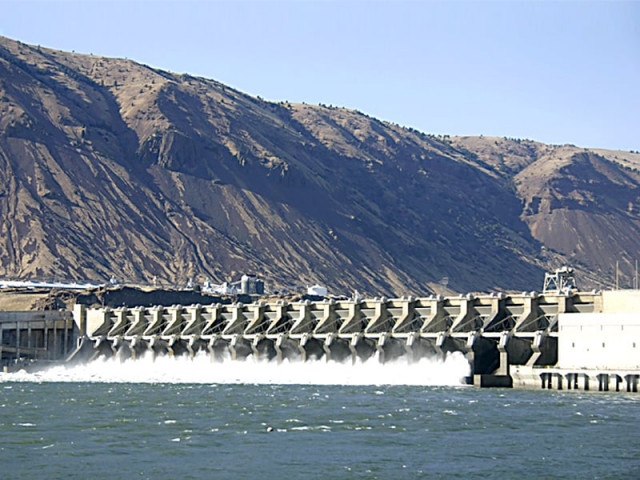Dams study urges diligence in power projects
Experts call for considering alternative methods to avoid displacement costs

The government has been advised to conduct due diligence and consider alternative methods of generating electricity when planning dams to mitigate issues such as displacement of local communities.
A study report, released on Thursday, emphasised that dams were not the only solution for power generation and water storage. It highlighted that alternative approaches could help avoid various externalities, particularly displacement of local communities.
The report was released at a ceremony in Islamabad. “Every dam proposal/project must pass through the sieve of due diligence matrix vis-a-vis alternate proposals. The matrix will justify, on knowledge base, where to invest,” the study suggested. Its co-author, Asghar Hussain, highlighted the options such as solar, wind, coal and other fossil fuels.
At a roundtable discussion during the event, Dr Abbas, a renowned water expert, drew attention of the participants towards displaced communities because of the dam projects as well as their climatic, ecological and geological footprints.
Read Rising water level no threat to dams
“Instead of making any money from Tarbela dam, Pakistan suffered a net loss of more than $200 billion because of its external costs that the relevant government departments and international lending agencies such as the World Bank do not take into account,” he pointed out.
Dr Ahsan Kamal, a researcher at the Quaid-e-Azam University, echoed the remarks by Dr Abbas. “One of the most devastating impacts of hydropower projects in Pakistan happened in the Indus Delta where, according to a World Bank estimates, more than 15 million people have been displaced.”
Also, the representatives of communities, which were affected by Tarbela, Neelum-Jhelum and Dasu projects, told the participants that they were neither consulted by the government before building the projects on their ancestral lands nor were they compensated adequately for their losses.
The event was also attended by Shahid Hamid, Adviser of the Water and Power Development Authority (Wapda), Imtiaz Hussain Balcoh, National Electric Power Regulatory Authority (Nepra) director and Senator Humayun Khan Mohmand of the Pakistan Tehreek-e-Insaf (PTI).
They defended the hydropower projects, saying that the development projects had costs as well as benefits. They emphasised that such projects must be carried out when their benefits outweighed their costs.
The hydropower projects, they argued, had resulted in both industrial and agricultural growth in the country which could not have been possible without them.



















COMMENTS
Comments are moderated and generally will be posted if they are on-topic and not abusive.
For more information, please see our Comments FAQ